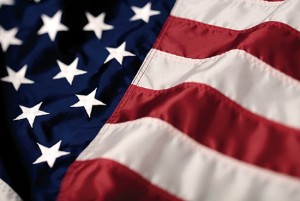 Today, “patriotism,” a proper love of country or home, is often castigated as narrow-minded, bigoted or reactionary by the cosmopolitan elites who police our public discourse.
Today, “patriotism,” a proper love of country or home, is often castigated as narrow-minded, bigoted or reactionary by the cosmopolitan elites who police our public discourse.
Unfortunately, the talking heads have lots of ammunition for such claims when politicians use campaign themes such as “Make America Great Again,” while at the same time clamor for the exclusion of whole groups of people from our country.
Patriotism, however, is a noble sentiment that compels us to work for the common good. It is perfectly consistent with the universal values and call to solidarity our Catholic faith requires. Like any virtue, it is a mean between the extremes of jingoistic nationalism and a sterile, abstract universalism that loves “humanity” but tends to dislike actual human persons.
Proper patriotism is rooted in the right idea about what makes (and has made) a country great and beloved; in this way, it is also a corrective force when one’s community fails to live up to that patrimony.
One preserves, protects and perpetuates a patrimony only that one loves. As St. Paul’s first archbishop, John Ireland, declared: “The value of patriotism to a people is above gold and precious stones, above commerce and industry, above citadels and warships. Patriotism is the vital spark of national honor; it is the fount of the nation’s prosperity, the shield of the nation’s safety. Take patriotism away, the nation’s soul has fled, bloom and beauty have vanished from the nation’s countenance.”
What ‘greatness’ means
People naturally have pride in their home. Americans are no different, and have always embraced the idea that this is a great and exceptional nation, guided by the hand of Providence.
But today, we continue to talk of greatness — and of the United States being the “greatest” nation now and of all time — untethered to any real, shared idea of what that means, and certainly without reference to the God in whom we no longer seem to trust.
For example, is greatness about having the preeminent military? Is it winning the most medals at the Olympics or having the largest economy?
True American patriotism is instead rooted in our country’s noblest ideals, and in the institutions and culture that promote those ideals. Unlike other nations that identify by ethnicity and a shared history, the United States is a nation founded on an idea — namely, the proposition that “all men are created equal, that they are endowed by their Creator with certain unalienable rights.”
Our nation is great when, as President Lincoln exhorted us, we prove this proposition true. Our history shows us that when we defend the rights of all persons, and extend the blessings of liberty to others outside the circle of exclusion, we truly live up to our expectations and responsibilities as an exceptional nation.
But when we, out of the (not illegitimate) fear of losing our country to forces out of our control, fall into narrow, ethnic, linguistic or racial categories about what it means to be an American, we undermine our greatness.
Promoting solidarity
Sometimes, because of our failings as a nation, patriotism is attacked. In its place are calls to be “global citizens” and proclamations of “God bless everyone, no exceptions.” But our responsibility of global solidarity does not mean transcending the particular responsibilities we owe to our family and the local community to which we have primary responsibility. Indeed, proper concern and care for those closest to us is actually the seedbed of national and global solidarity.
As the prophet G.K. Chesterton noted: “A man who loves humanity and ignores patriotism is ignoring humanity. . . . The fundamental spiritual advantage of patriotism and such sentiments is this: that by means of it all things are loved adequately, because all things are loved individually.”
As Catholics, we must model and cultivate a proper patriotism — a love for our communities and our nation rooted in its noblest patrimony of extending the blessings of liberty. Likewise, we must remind our fellow citizens that, at a global level, our nation’s greatness will be found in humility and service, that is, becoming small — not in power and the imposition of our culture. Changing our world first means changing ourselves. In other words, our Catholic faith calls us to “think globally, and act locally.”
Adkins is executive director of the Minnesota Catholic Conference.



